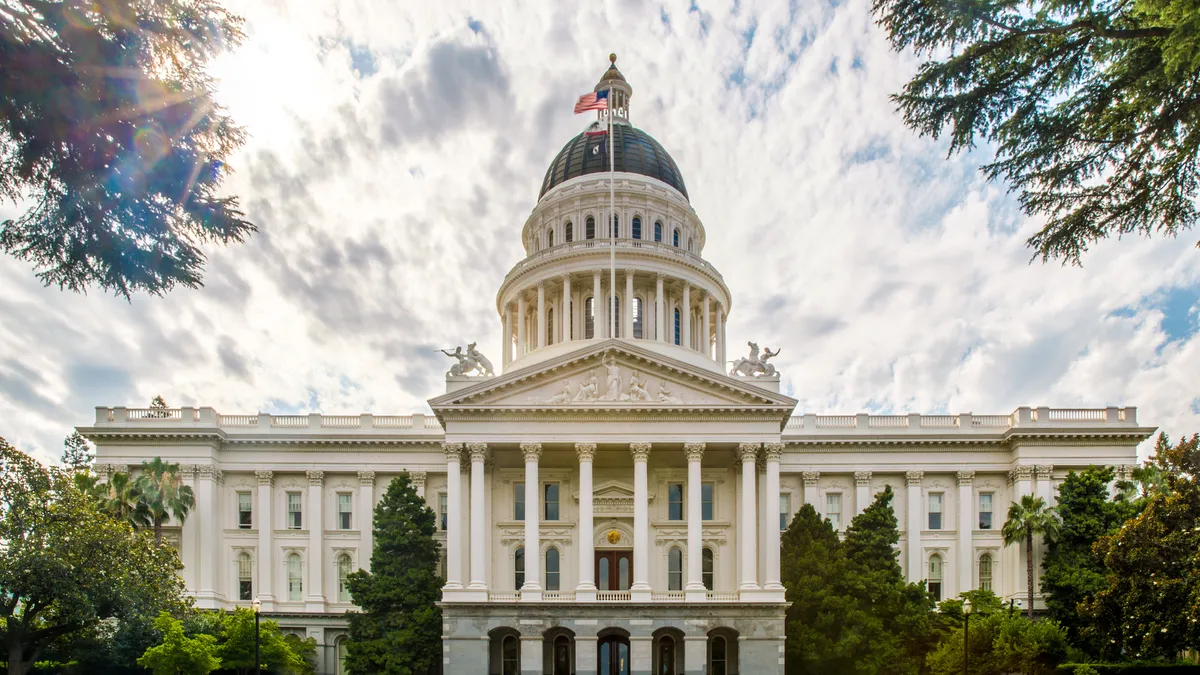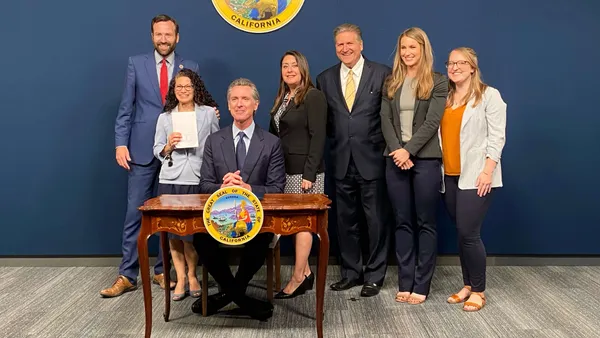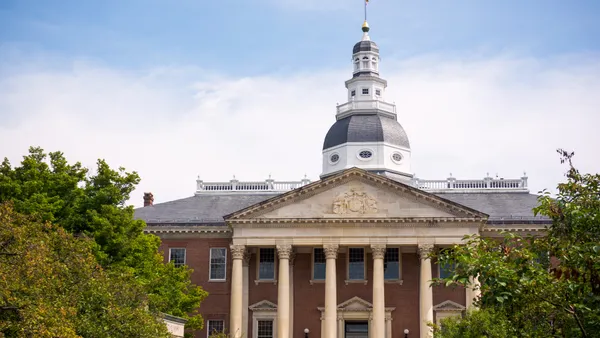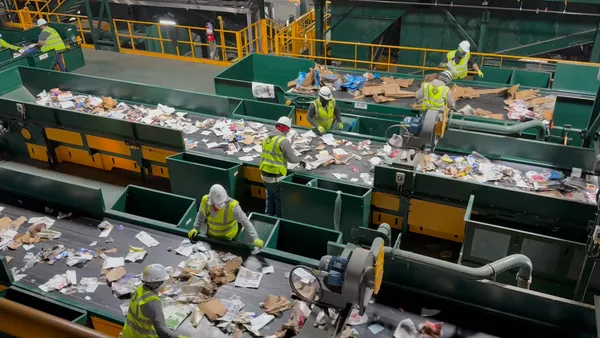Dive Brief:
- California's state legislature is currently considering three bills related to plastic recycling and pollution, as reported by Plastics Recycling Update. The first bill, AB 319, would prohibit the sale of single use beverage containers with separate caps by January 2020. Only caps that are tethered or somehow attached would be acceptable.
- The Ocean Pollution Reduction Act of 2017, SB 705, would prohibit food providers from using disposable containers for take-out food that aren't accepted by local recycling or composting programs. If passed, this law would take effect in January 2021.
- The third bill, AB 1594, would require the state's Ocean Protection Council to conduct a study on the causes of marine plastic pollution and provide recommendations for further legislative action or other solutions.
Dive Insight:
According to AB 1594, less than 5% of non-beverage plastic packaging is currently recycled in the state. While a source isn't provided for that figure, the evidence of marine pollution along the Pacific coastline is clear and has been a top priority for local environmental advocates. Last year, a group of organizations released a list of the "most harmful" plastic products sold in California that included bottle caps and plastic containers.
While recyclers have demonstrated the capability to handle a wide variety of caps and containers, that may not matter if local collection programs don't accept all of them or the material doesn't make it into the proper receptacles. Dozens of municipalities around the state have been tasked with strict marine litter reduction targets that they are struggling to meet due to the high costs of stormwater infrastructure.
The politics around any type of packaging mandate are often complicated, as seen in California during the multi-year debate leading up to a statewide ban on plastic bags last fall. Whether regulation on these particular packaging categories would solve the marine pollution problem remains to be seen. The potential emissions consequences of emphasizing different packaging types will also need to be studied. Though the state's environmental agency has recently shown interest in some type of mandatory extended producer responsibility program for packaging, so that could help these proposals gain additional traction.














